Andrew Graham-Yooll served as editor for the Index on Censorship magazine from 1989-1994. To honour his memory, Index features some highlights of his writing for the magazine about his home country Argentina


Andrew Graham-Yooll served as editor for the Index on Censorship magazine from 1989-1994. To honour his memory, Index features some highlights of his writing for the magazine about his home country Argentina

Former editor of Index on Censorship magazine Judith Vidal-Hall remembers her friend and former Index colleague
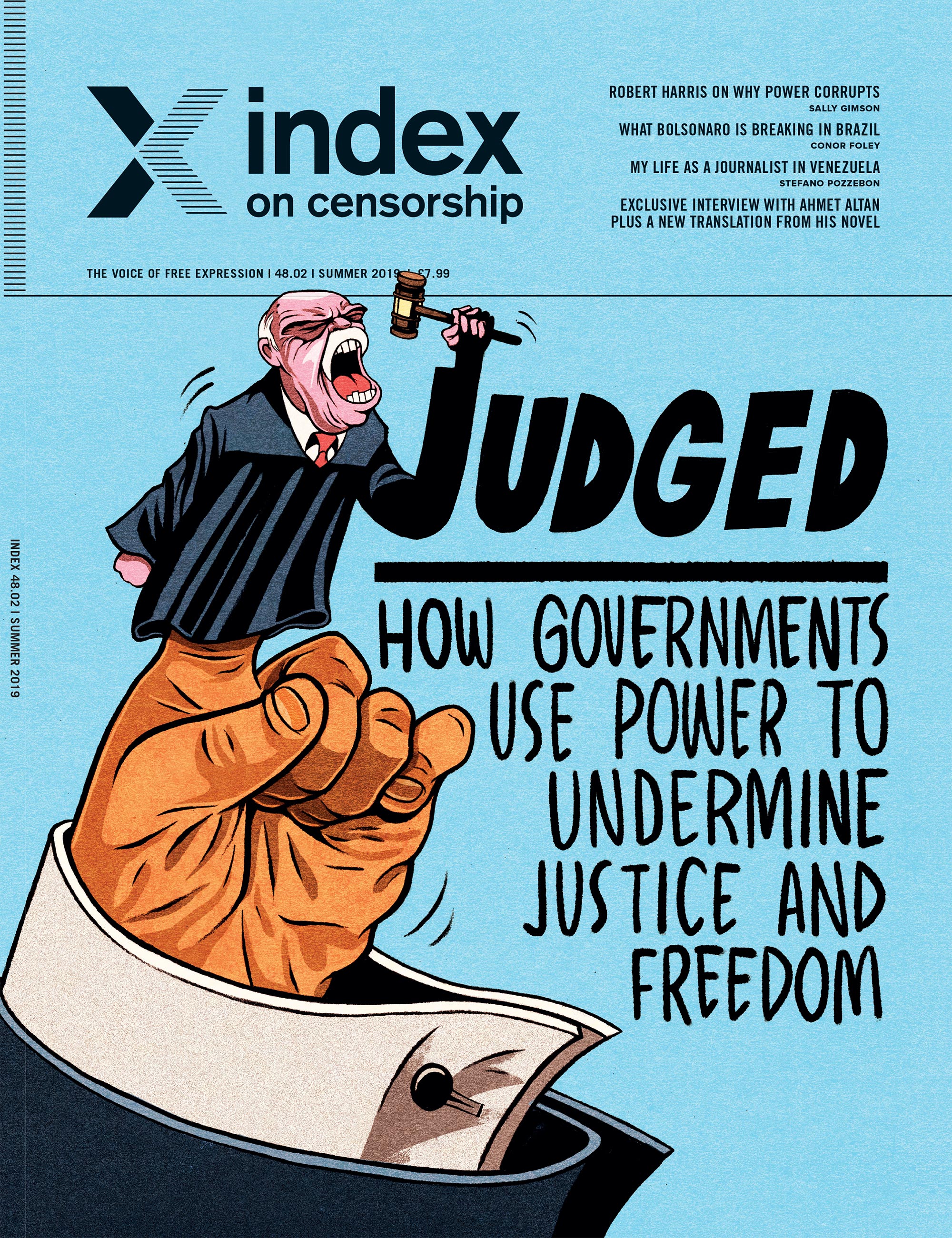
The distance between national leaders and judges is narrowing around the world. The summer 2019 issue of @Index_Magazine looks at how the erosion of judicial independence is impacting freedom of expression
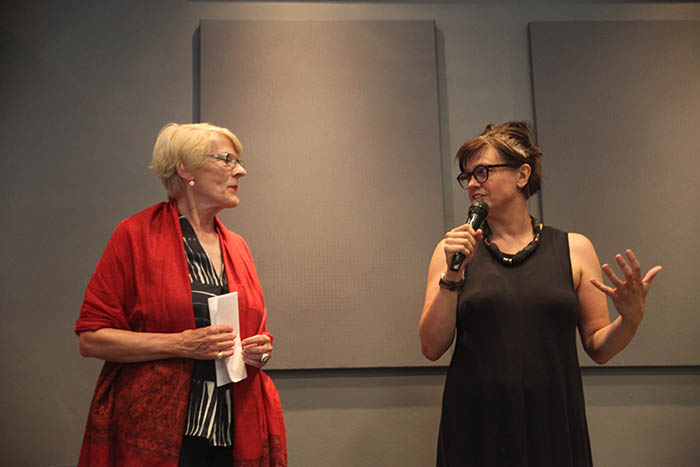
The summer 2019 edition of Index on Censorship magazine looks at how governments use power to undermine justice and freedom

[vc_row][vc_column][vc_video link="https://youtu.be/cA4H7_d9q20"][vc_column_text] The summer 2019 Index on Censorship magazine looks at the narrowing gap between a nation's leader and its judges and lawyers. What happens when the independence of...

Summer podcast with Xinran, Stefano Pozzebon and Steven Levitsky exploring how governments use power to undermine justice and freedom.
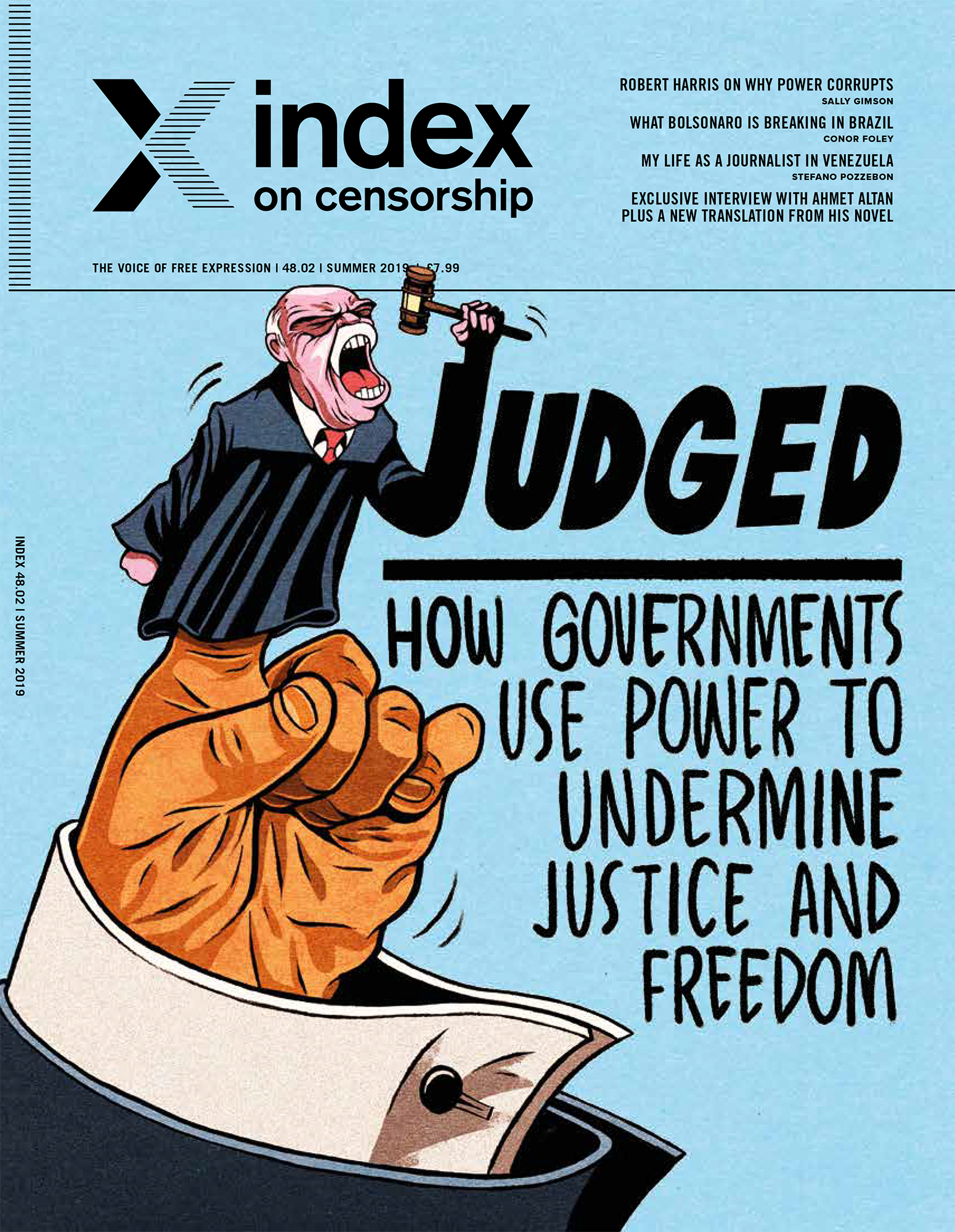
The summer 2019 edition of Index on Censorship magazine looks at how governments use power to undermine justice and freedom
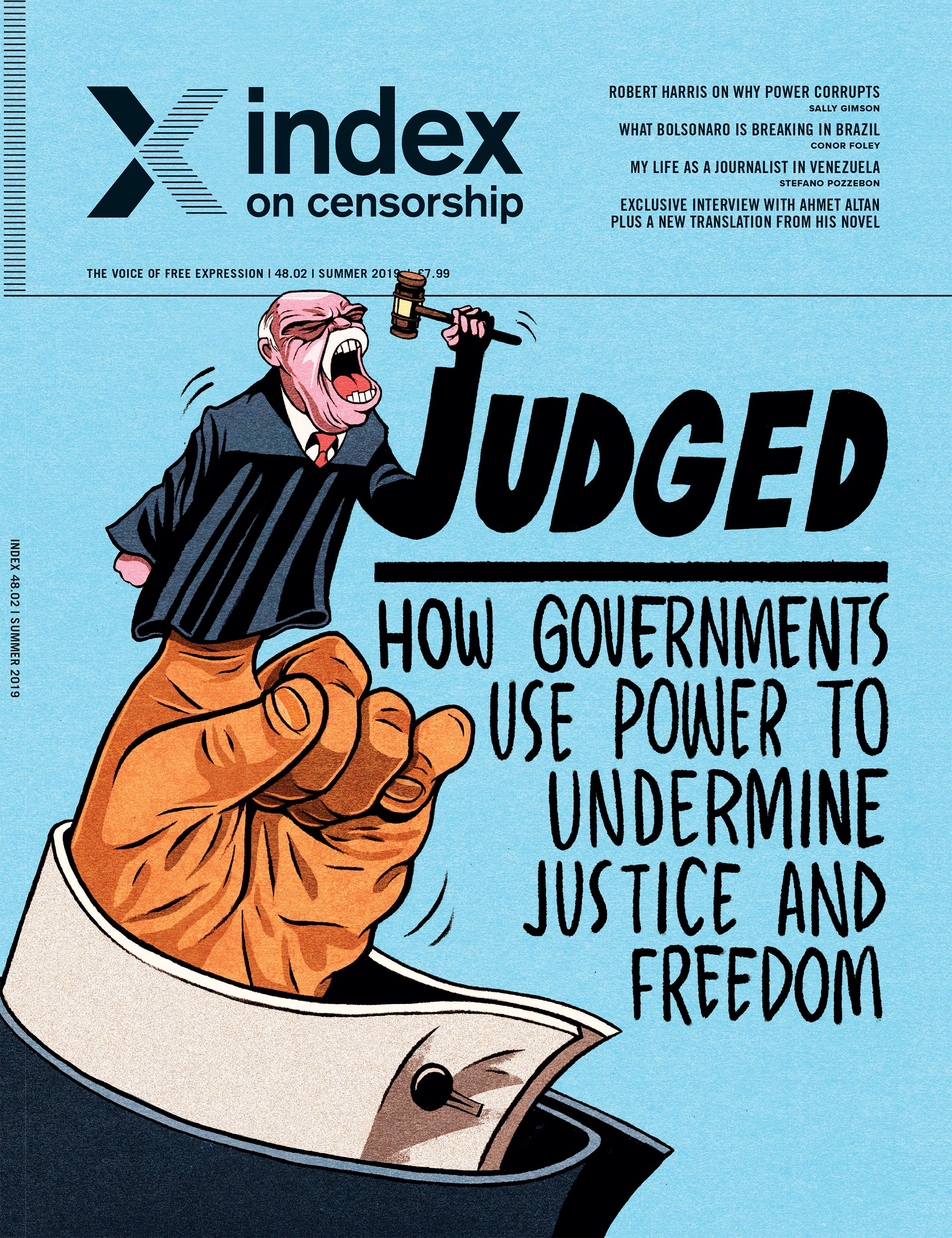
The summer 2019 Index on Censorship magazine looks at the narrowing gap between a nation’s leader and its judges and lawyers. What happens when the independence of the justice system is gone and lawyers are no longer willing to stand up with journalists and activists to fight for freedom of expression? In this issue Stephen Woodman reports from Mexico about its new government’s promise to start rebuilding the pillars of democracy; Sally Gimson speaks to best-selling novelist Robert Harris to discuss why democracy and freedom of expression must continue to prevail; Conor Foley investigates the macho politics of President Jair Bolsonaro and how he’s using the judicial system for political ends; Jan Fox examines the impact of President Trump on US institutions; and Viktória Serdült digs into why the media and justice system in Hungary are facing increasing pressure from the government. In the rest of the magazine a short story from award-winning author Claudia Pineiro; Xinran reflects on China’s controversial social credit rating system; actor Neil Pearson speaks out against theatre censorship; and an interview with the imprisoned best-selling Turkish author Ahmet Altan.
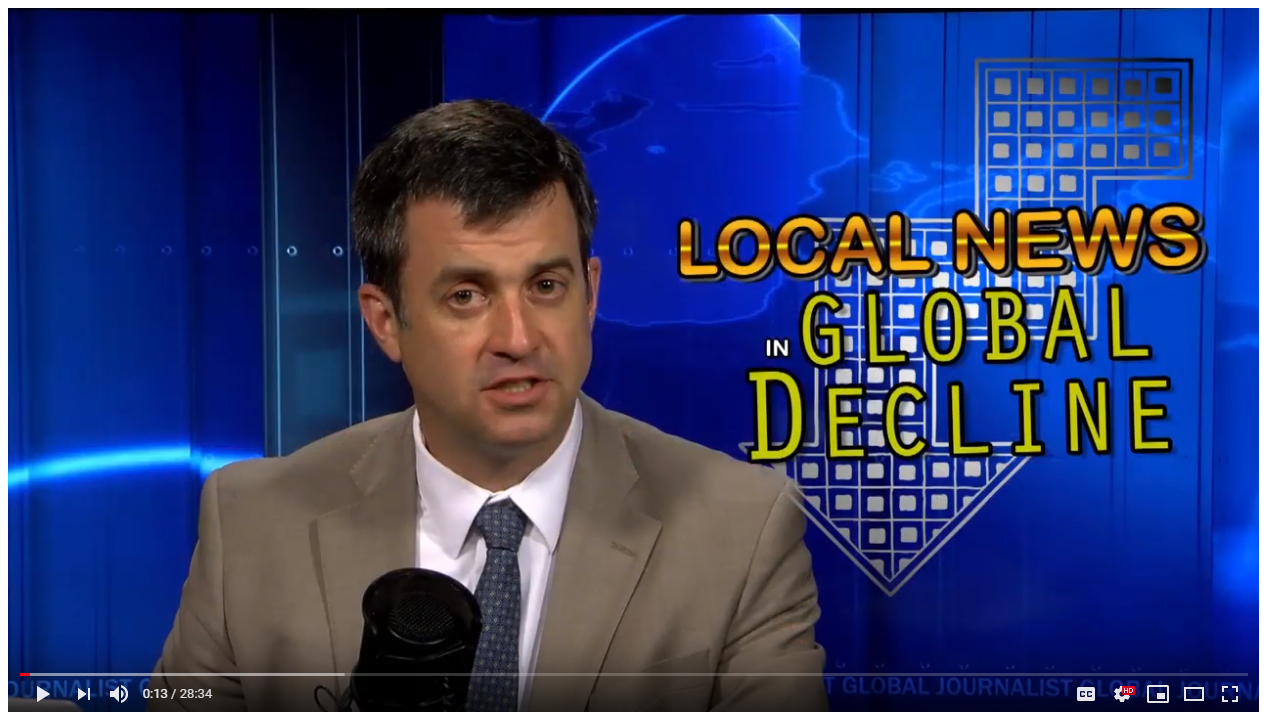
Index magazine editor Rachael Jolley joins Global Journalist to discuss the decline of local news all around the world and what this means for democracy.
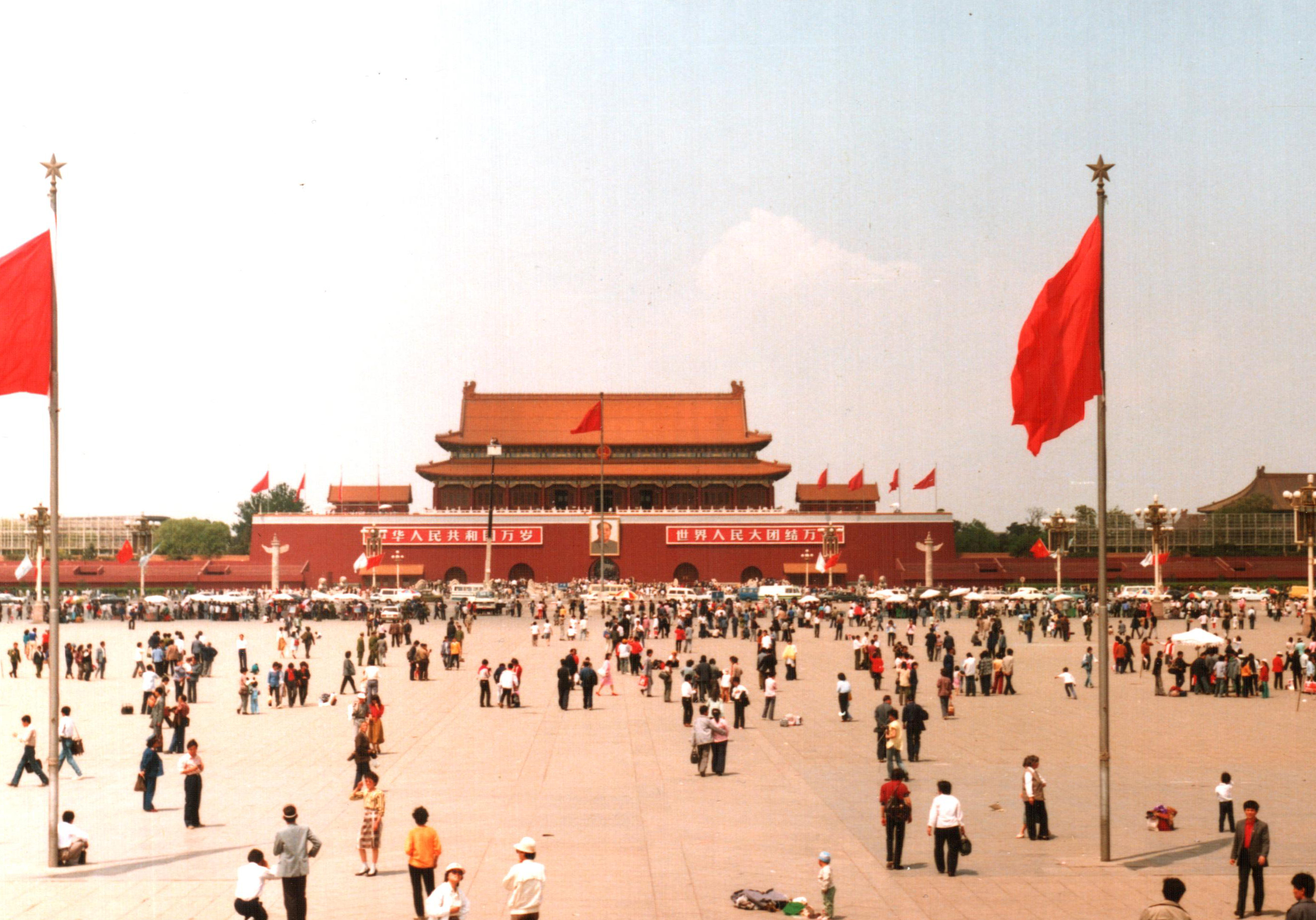
八九学运领袖王丹同著名作家欣然探讨天安门学运结果及其遗产
A quarterly journal set up in 1972, Index on Censorship magazine has published oppressed writers and refused to be silenced across hundreds of issues.
The brainchild of the poet Stephen Spender, and translator Michael Scammell, the magazine’s very first issue included a never-before-published poem, written while serving a sentence in a labour camp, by the Soviet dissident Aleksandr Solzhenitsyn, who went on to win a Nobel prize later that year.
The magazine continued to be a thorn in the side of Soviet censors, but its scope was far wider. From the beginning, Index declared its mission to stand up for free expression as a fundamental human right for people everywhere – it was particularly vocal in its coverage of the oppressive military regimes of southern Europe and Latin America but was also clear that freedom of expression was not only a problem in faraway dictatorships. The winter 1979 issue, for example, reported on a controversy in the United States in which the Public Broadcasting Service had heavily edited a documentary about racism in Britain and then gone to court attempting to prevent screenings of the original version. Learn more.